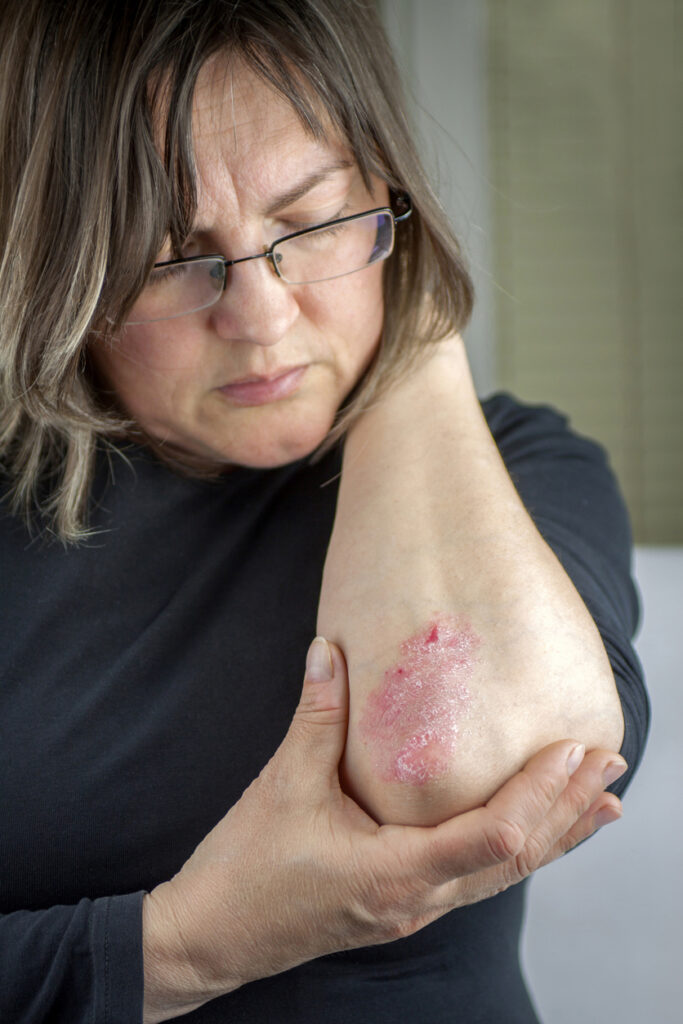Tildrakizumab (Ilumetri, Almirall) showed sustained improvements in skin clearance, psychological well-being, and improved partner quality of life in adults with moderate-to-severe psoriasis over two years, according to new long-term results from the POSITIVE study, which was presented at the European Academy of Dermatology and Venereology 2025 (EADV) in Paris, France.
Tildrakizumab is a humanized monoclonal antibody that targets interleukin-23 (IL-23). Sun Pharma granted Almirall the rights to develop and commercialize the drug in Europe.
POSITIVE is the first real-world evidence (RWE) study in dermatology to use the World Health Organization Well-Being Index (WHO-5) as a primary endpoint. The 24-month, multinational, phase IV observational study enrolled 785 adult patients with moderate-to-severe plaque psoriasis across nine European countries, all receiving tildrakizumab in routine clinical practice.
The results show tildrakizumab’s long-term effectiveness on both skin outcomes and patient-reported outcomes.
Key Takeaways
- Rapid and sustained improvement of psychological well-being (assessed by WHO-5): Baseline well-being scores of subjects with moderate-to-severe psoriasis averaged 53.7, significantly below the European population mean scores of 64.9 and comparable to levels seen in people with diseases like diabetes or breast cancer. After 16 weeks of treatment, scores improved to 63.2, restoring well-being to the same range as the European average. By two years, the well-being scores of subjects rose further to 70.43, surpassing the general population mean.
- Rapid and sustained skin clearance: Psoriasis Area and Severity Index (PASI) scores improved from 12.9 at baseline to 2.4 at Week 16 and 1.3 at Year 2, with 79% of patients maintaining PASI ≤2 after two years.
- Improved quality of life: Dermatology Life Quality Index revised scores improved from 12.0 at baseline to 2.1 at Year 2.
- Reduced partner burden (Family PsO): Scores significantly improved throughout the study period from 1.1 at baseline to 0.6 at Year 2 (P<0.001), demonstrating that the impact of effective therapy also benefits partners.
Treatment with tildrakizumab was generally well-tolerated over the two-year study period, with a safety and tolerability profile in line with previous clinical studies.
A Holistic Approach
“POSITIVE takes a truly holistic approach to managing psoriasis by incorporating PROs that were previously unexplored in dermatology, such as the WHO-5 score for measuring psychological well-being and the impact of the disease on patient’s partners,” says Ulrich Mrowietz, MD, Professor of Dermatology and the Founder of the Psoriasis Center in the Department of Dermatology at the University Medical Center Schleswig-Holstein in Kiel, Germany and lead investigator of POSITIVE, in a news release. “This study provides valuable new insights for the dermatology community.”
“The POSITIVE study demonstrates that advanced therapies such as those targeting IL-23 can truly raise the bar when it comes to treatment success,” adds Dr. Volker Koscielny, Almirall’s Chief Medical Officer. “Measuring psychological and physical well-being as primary outcomes, the POSITIVE study demonstrates comprehensively—for the first time—that patients can ‘get their lives back’ as a range of relevant health aspects improve with treatment. The study also proposes a model that looks at disease impact in a more holistic way, including the impact on people close to the patients. This means we at Almirall are—through our close collaboration with visionary dermatologists—setting a new standard for patient-centered dermatological care and pushing the boundaries of optimized treatment outcomes.”


